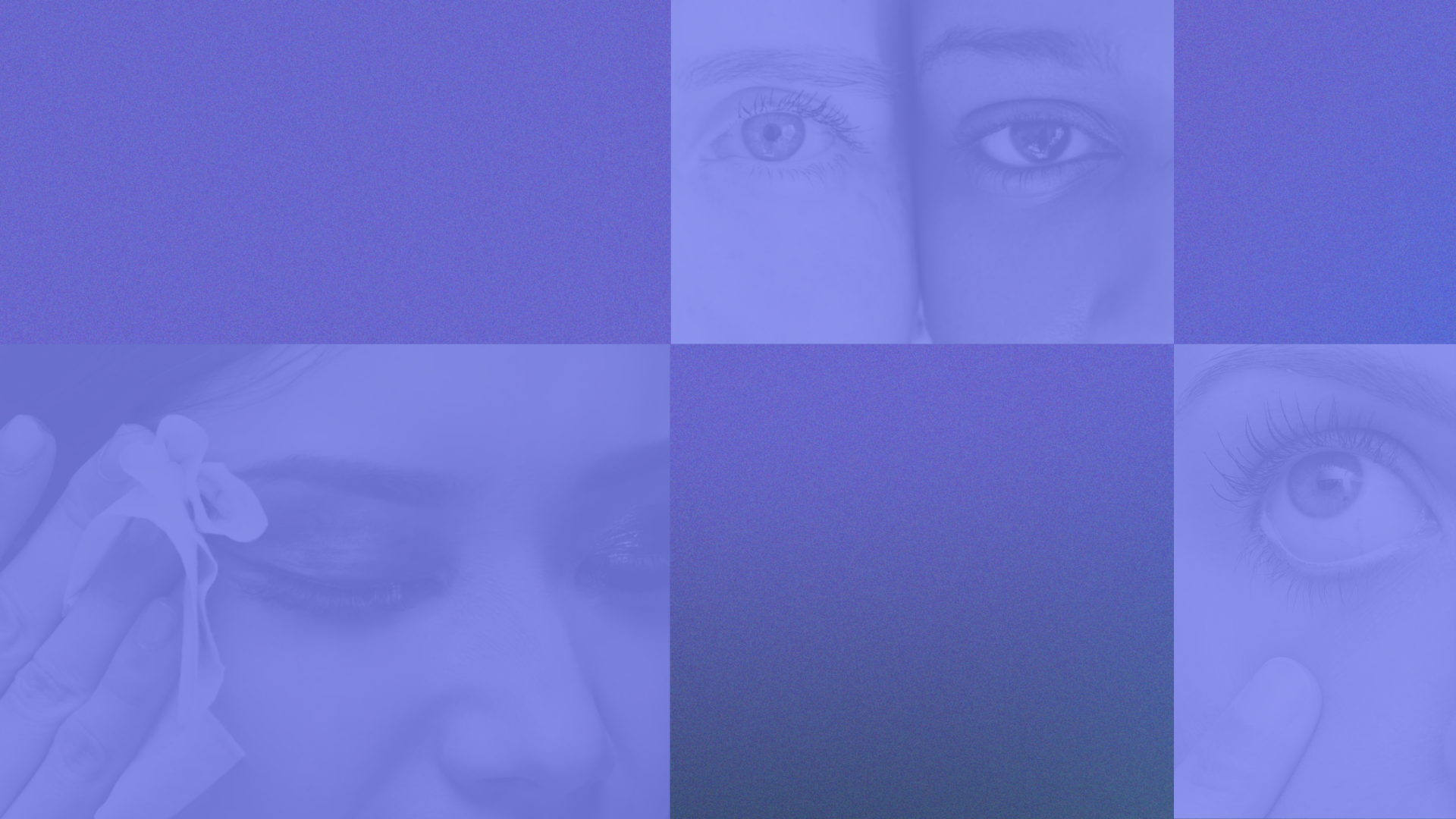
About 61% of perimenopausal and menopausal women deal with dry eye symptoms.
Dry eye has a dramatic effect on quality of life. Multiple studies have shown that quality of life is 2-3x poorer for women with long-term moderate or severe dry eye. Yet, few resources are available for doctors and patients to learn more about the research and best practices.
Skin Care Products
Eye Care Products
Explore Our Blogs
View all-
Simple Eye Care Habits for Healthier Eyes All Y...
A healthy eye care routine doesn’t require big resolutions. Learn how small, consistent habits like daily eyelid hygiene, hydration, blinking, and screen breaks can support healthier eyes in the new...
Simple Eye Care Habits for Healthier Eyes All Y...
A healthy eye care routine doesn’t require big resolutions. Learn how small, consistent habits like daily eyelid hygiene, hydration, blinking, and screen breaks can support healthier eyes in the new...
-
Does Cold Weather Dry Out Your Eyes? Why Winter...
Cold, dry air and indoor heating can worsen dry eye symptoms during winter by increasing tear evaporation. Learn why eyes feel drier in cold weather and how simple habits, including...
Does Cold Weather Dry Out Your Eyes? Why Winter...
Cold, dry air and indoor heating can worsen dry eye symptoms during winter by increasing tear evaporation. Learn why eyes feel drier in cold weather and how simple habits, including...
-
Accutane and Dry Eye: What to Know to Protect Y...
Accutane (isotretinoin) is a powerful acne treatment, but it often leads to dry eye by disrupting the eyelid’s oil-producing glands. This consumer-focused article explains why dry eye occurs during Accutane...
Accutane and Dry Eye: What to Know to Protect Y...
Accutane (isotretinoin) is a powerful acne treatment, but it often leads to dry eye by disrupting the eyelid’s oil-producing glands. This consumer-focused article explains why dry eye occurs during Accutane...
FAQ for Patients
Why is dry eye a big deal?
Dry eye has a dramatic effect on quality of life. Multiple studies have shown that quality of life is 2-3x poorer for women with long-term moderate or severe dry eye.
The reason for this quality of life deterioration includes the discomfort and physical symptoms, but much is tied to consequences such as inability to drive, inability to sit in an air condition room, desire to go to bed earlier to relieve eye discomfort, etc. These are effects that over time cause friendships and relationships to deteriorate. And the data is overwhelming on these points.
Why is this happening to my body?
During menopause, a woman’s hormones change dramatically. In particular, androgen hormones (such as testosterone) appear to dramatically decrease causing degradation of the meibomian glands. Other hormones - such as estrogen and progesterone - also decrease. The data on these hormones effects on the eyes is mixed. So, while the decrease of these hormones has a direct effect on the eyes and the glands, the consequences of that impact are unclear.
A common therapy, Menopausal Hormone Therapy (MHT, sometimes caused hormone replacement therapy HRT) can improve many quality of life elements for women - including helping to prevent weight gain, hot flashes, and many other menopause symptoms. But, it has not shown to have consistent positive benefits to dry eye.
So what should I do?
There's a few different "tiers" of treatment.
Tier 1, which is stuff EVERYONE should be doing, consists of:
- Using a warm compress 10 minutes every day.
- Better ocular hygiene, menaing wash your eyelids with tea tree oil, hypochlorous acid, or okra oil every time you shower or bathe.
- Add a fish oil to your daily vitamin habit.
- Drink more water.
- Sleep longer and try to improve sleep quality as well.
Tier 1a, things everyone can do but not necisarily daily.
- Short-term relief drops. These are great if your symptoms are rare or sporadic. If you are using artificial tears multiple times a day, you need to talk to your doctor.
- Overnight ointment. Similar to tears, this a great option if your discomfort is seasonal or tied to the dryness in the air for short period of time, but if you are using these every night for relief or to sleep, talk to your doctor.
Tier 2, things to work with your doctor on if tier 1 doesn't rid your symptoms.
- Punctal plugs - these help keep lubrication on your eyeball.
- Professional debridement - an eyelash and eyelid cleaning to remove infestations of mites and clogs of glands.
- Pharmacological solutions - depending on the type of symptoms you are experiencing, other treatments such as Tyrvaya, Restasis, Xiidra, and Miebo are available. To learn more on these, talk with your doctor.
- Regular treatments - Intense Pulse Laser (IPL), Radio Frequency (RF), and Lipiflow are common treatments to increase the production and secretion of lubricating tears
Tier 3, seeing a specialist.
- Some women may need surgery to help with lubricating tears.
- An Amniotic Membrane; a membrane placed over severely damaged ocular surface tissue to help improve healing.
































